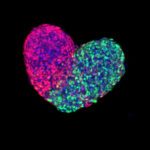Lien vers Pubmed [PMID] – 36538486
Lien DOI – 10.1073/pnas.2210995119
Proc Natl Acad Sci U S A 2022 Dec; 119(52): e2210995119
Predators and their foraging strategies often determine ecosystem structure and function. Yet, the role of protozoan predators in microbial soil ecosystems remains elusive despite the importance of these ecosystems to global biogeochemical cycles. In particular, amoebae-the most abundant soil protozoan predator of bacteria-remineralize soil nutrients and shape the bacterial community. However, their foraging strategies and their role as microbial ecosystem engineers remain unknown. Here, we present a multiscale approach, connecting microscopic single-cell analysis and macroscopic whole ecosystem dynamics, to expose a phylogenetically widespread foraging strategy, in which an amoeba population spontaneously partitions between cells with fast, polarized movement and cells with slow, unpolarized movement. Such differentiated motion gives rise to efficient colony expansion and consumption of the bacterial substrate. From these insights, we construct a theoretical model that predicts how disturbances to amoeba growth rate and movement disrupt their predation efficiency. These disturbances correspond to distinct classes of bacterial defenses, which allows us to experimentally validate our predictions. All considered, our characterization of amoeba foraging identifies amoeba mobility, and not amoeba growth, as the core determinant of predation efficiency and a key target for bacterial defense systems.

